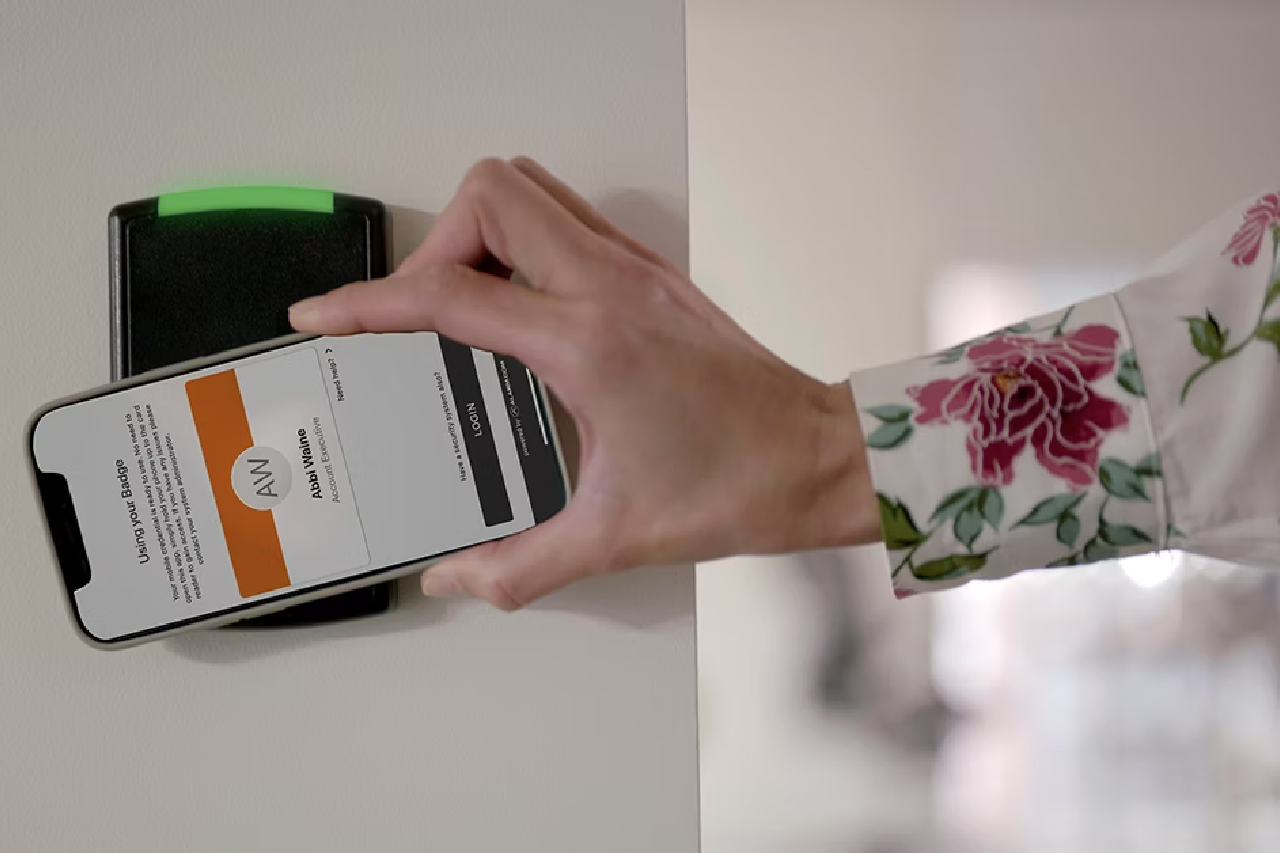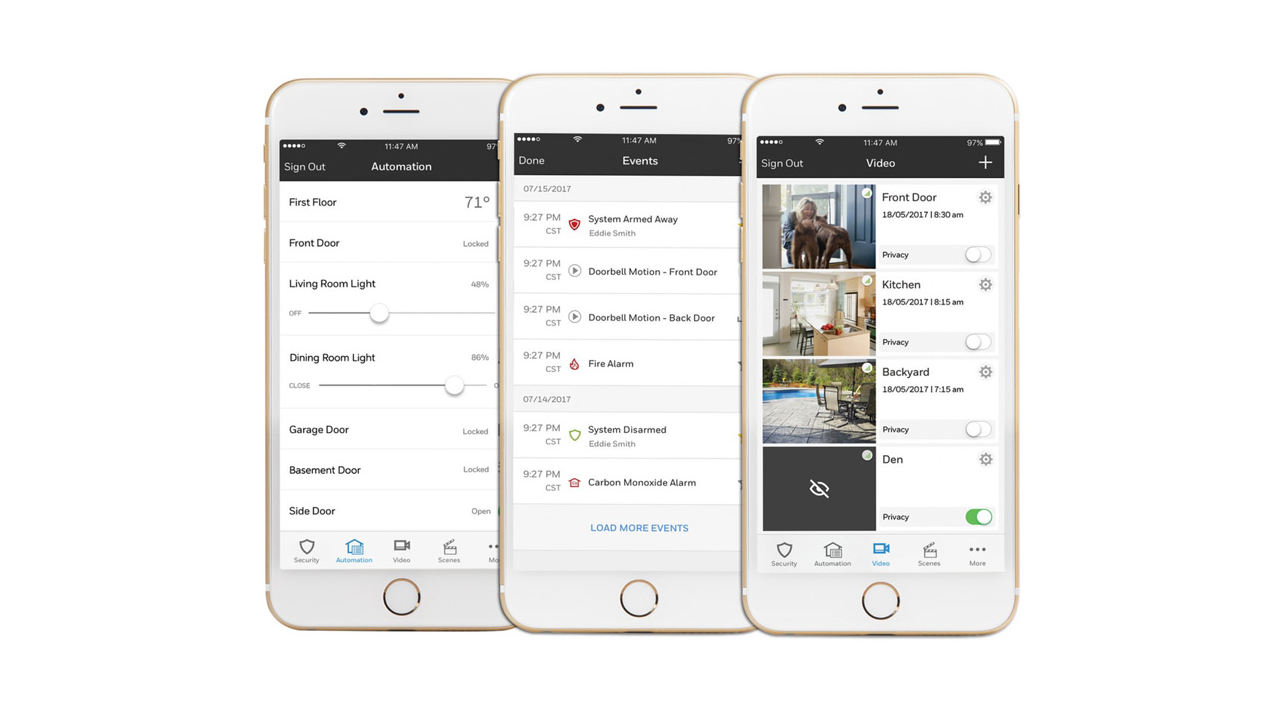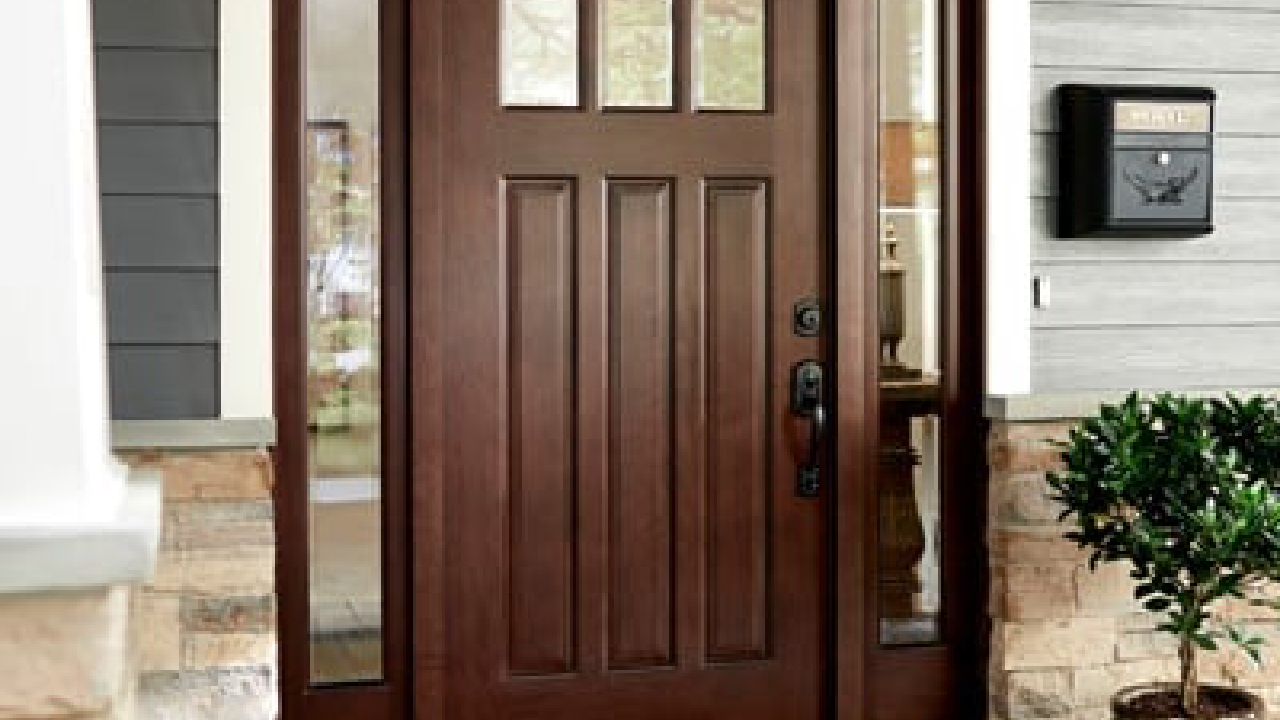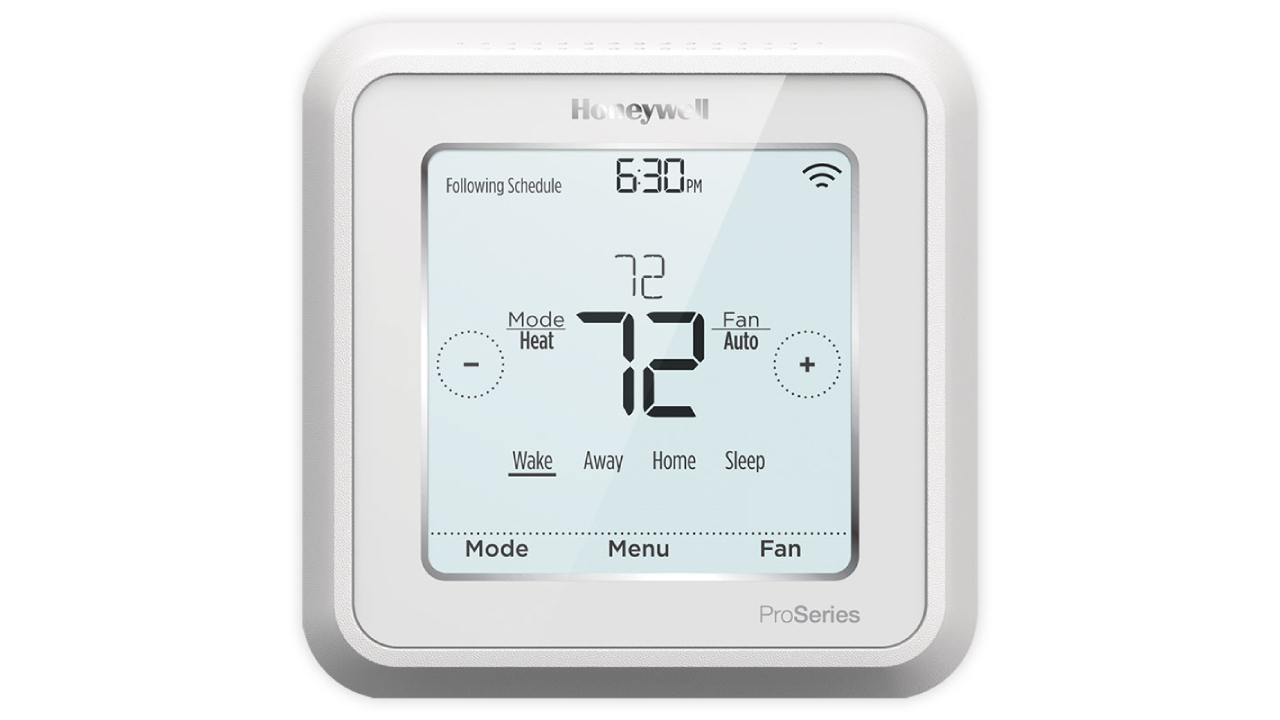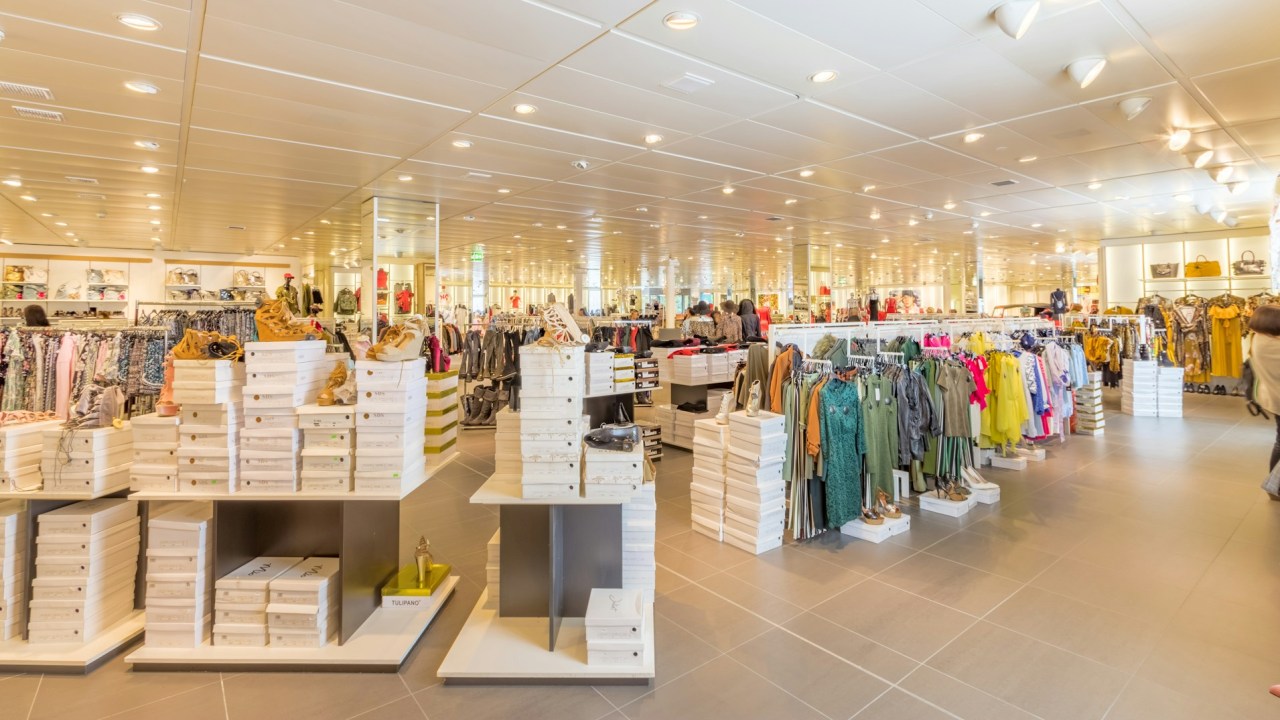Last Updated on March 4, 2022 by Alarm New England
So you’ve just moved into your new house, and you’ve got already got a hundred home improvement ideas buzzing about in your head. One of your main concerns is protecting your investment in your new home with home alarm systems, locks, and maybe even security cameras.
We all want the best protection for our houses, and as far as protection goes, security cameras are the most interactive part of the security system. But if you just bought a house, money can be tight, and a single high-quality camera can set you back hundreds of dollars.
If you can’t afford the real thing, fake security cameras are a tempting way way to provide some protection at a low price. But you have to ask yourself: Are the savings worth it?
So Let’s Start with: What is a Fake Security Camera?
Fake security cameras are designed to look like real security cameras in appearance, but don’t have the features, capabilities and functions of real ones. They are also called dummy cameras, simulated cameras, or decoy cameras.
Now the fake cameras for security come in a wide range of shapes and sizes, such as the fake security cameras with red light and motion detectors.
The price of outdoor fake security cameras can be lower than the real ones, but they are often built with inferior materials and many fake security cameras don’t have real lenses or other components to create a more believable facade.
Some may prefer fake outdoor security cameras to install outside your house or at your business, because you think they can fool intruders and stop home break-ins.
They can’t, however.
Keep reading to learn more about fake security cameras and how to optimally protect your assets.
Real vs. Fake Security Cameras
Security cameras have plenty of advantages when it comes to protecting your home—there’s no doubt about it. First, they serve as a deterrent. If prospective burglars look around and spot the cameras, they may decide that your home is more trouble than it’s worth. The last thing criminals want is for their face to end up on the evening news and all over the internet.
The other main advantage of security cameras is that if prospective thieves don’t spot the cameras and manage to enter your property, you may be able to capture their faces on record.
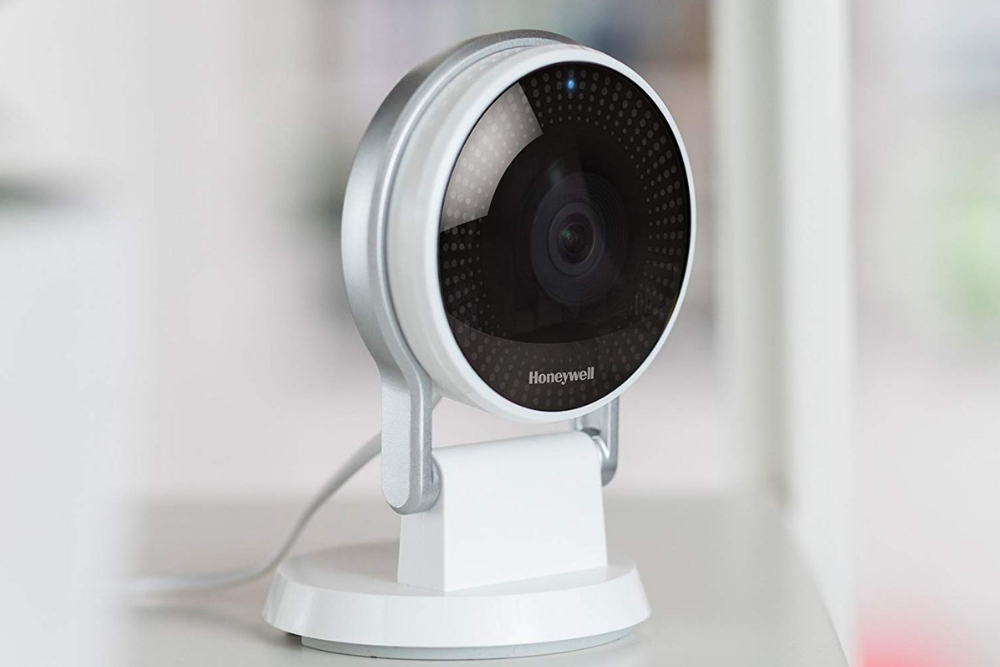
You can check how many people were there, what time the burglary occurred and what was taken from your home. The more helpful information you can provide to law enforcement officers, the more resources they can devote to bringing the burglars to justice.
Fake cameras provide that initial deterrence, relying on their visibility as a threat. They’re bluffing, basically. If burglars don’t see the camera, if they know it’s fake or if they just don’t care, then the fake camera is useless.
With that in mind, there are three main reasons to go for fake security cameras instead of real ones.
- They’re cheap. The cost of a few real cameras can get you a full array of fake ones to place throughout your home. If you really can’t spare the money but need to secure your house, they might pass muster. The appearance of security is enough to scare off some burglars, and having some deterrence is better than having none at all.
- They’re easier to install. Fake cameras don’t have any circuitry or connections like the real ones do, so all you have to do is secure them where you want them with screws or double-sided tape.
- Fake security cameras will deter inexperienced, low-level criminals. After all, they don’t want to get caught. If potential burglars think they’re being watched and recorded, that may be enough to scare them off and keep your house safe another day.
But are these advantages enough to make up for the downsides of installing fake security cameras?
The Negatives of Fake Security Cameras
- Fake cameras don’t record. Camera footage by itself won’t directly stop someone from breaking into your house, but you’ll have a record to give to police officers when they take your statement. If your home is burgled, you’ll have less information to assist with any investigation if you only have fake security cameras. A real surveillance camera can catch burglars or thieves “in the act”, which is exactly what a fake security camera fails to do. In the end, fake video security cameras just become a decoration.
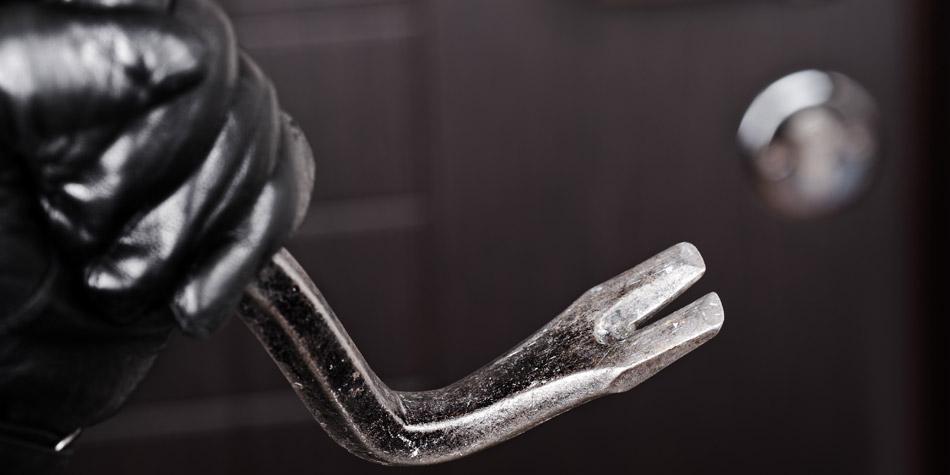
- Experienced criminals can tell a fake camera from a real one. They will realize you neglected to buy real cameras and know you’re cheap on security and thus an easy mark. Burglars are much cleverer than you think. A knowledgeable or experienced criminal can easily tell the difference between a fake security camera and a real one.
- Fake security cameras are risky to use anywhere other than your home. At home, it’s your house, and you can do what you want with it. But if you’re running a business and you use fake security cameras, you could very well open yourself up to legal trouble on the grounds that you’re creating a false sense of security for employees and visitors.
- There have been lawsuits where people, trusting that security cameras were real, left their vehicles in view and were subsequently robbed or carjacked. It’s unfair to your employees, and it’s just plain bad business: Who would want to work with someone who doesn’t value their business and their employees’ safety?
- There is no remote access with fake security cameras or remote access. A fake security camera falls short when you want to know who is in your house, if your children are back from school, if the baby wakes up, what the dog is getting into, and whether your package arrives. One features of real security cameras is that you can have remote access to your home and business from anywhere and anytime on your mobile devices.
What if someone breaks into your house? Fake security cameras aren’t able to notify you in case of an emergency. A real surveillance camera can send you push notifications, emails and audio alarm (siren) when it detects motions and finds dangers. You can react in real-time and call 911, to reduce your loss.
Is It Worth Using a Fake Security Camera?
If you’re trusting of your neighborhood and you are absolutely certain you’ll never get anything but petty thieves, then you might be able to get by with fake security cameras.
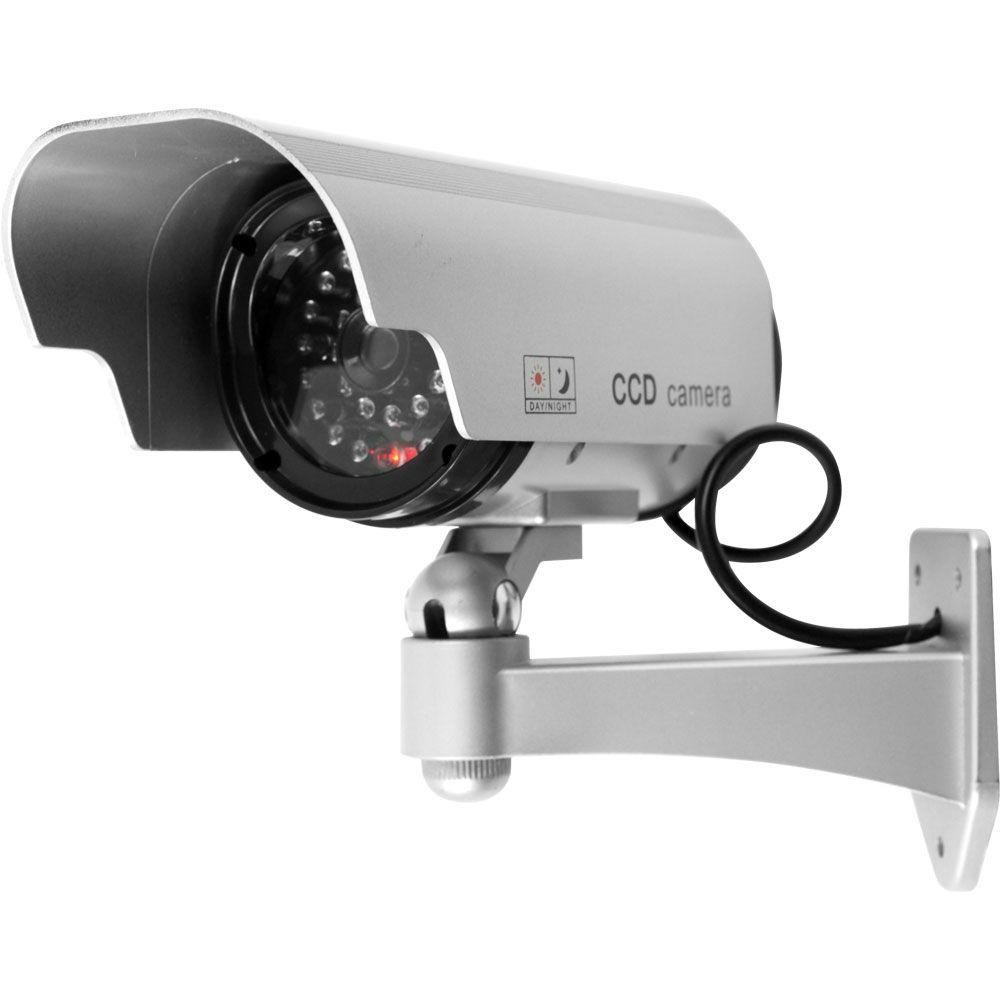
But any thief worth their salt won’t be deterred by fakes, and they may even be encouraged once they recognize them. Your belongings and your peace of mind are worth more than temporary savings. Besides, real security cameras aren’t that much more expensive than fake ones anymore.
Most fake cameras are cheaper than real ones; after all, blinking lights in a plastic case is always going to be cheaper than an actual camera and its circuitry. Most fake cameras go for around $20 for single units.
But not all real security cameras will break your bank. High-end consumer-grade cameras can go for upward of $200, but they’re hardly the only ones available on the market. Plenty of cameras fall within the more affordable range of $80 to $100, with minimal video quality loss. Some even have wireless and cloud storage capability.
You’ve got a lot of options for security at your fingertips, whether you need just one or two cameras covering the vital areas or a more comprehensive solution. Don’t leave your home unprotected: Get real security cameras and real protection.
So, as you consider using fake security cameras, make sure you factor in what would be the best choice to deter crime?
The answer is obvious: real security cameras are able to not only reduce your exposure to theft but provide peace of mind.
And the proof?
According to the home burglary statistics, homes with security camera systems are up to 300% less likely to be broken into.
Using fake security cameras, on the contrary, would only make your home or business the target of crimes, and put your family and property into the risk of being robbed.


